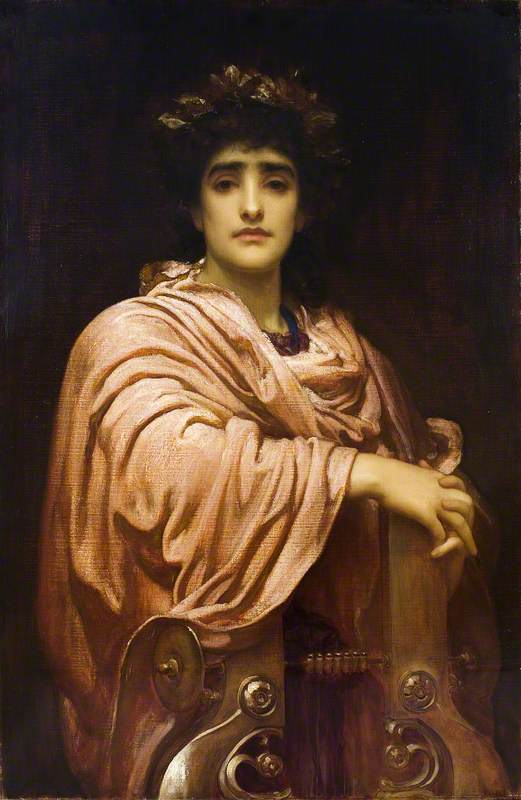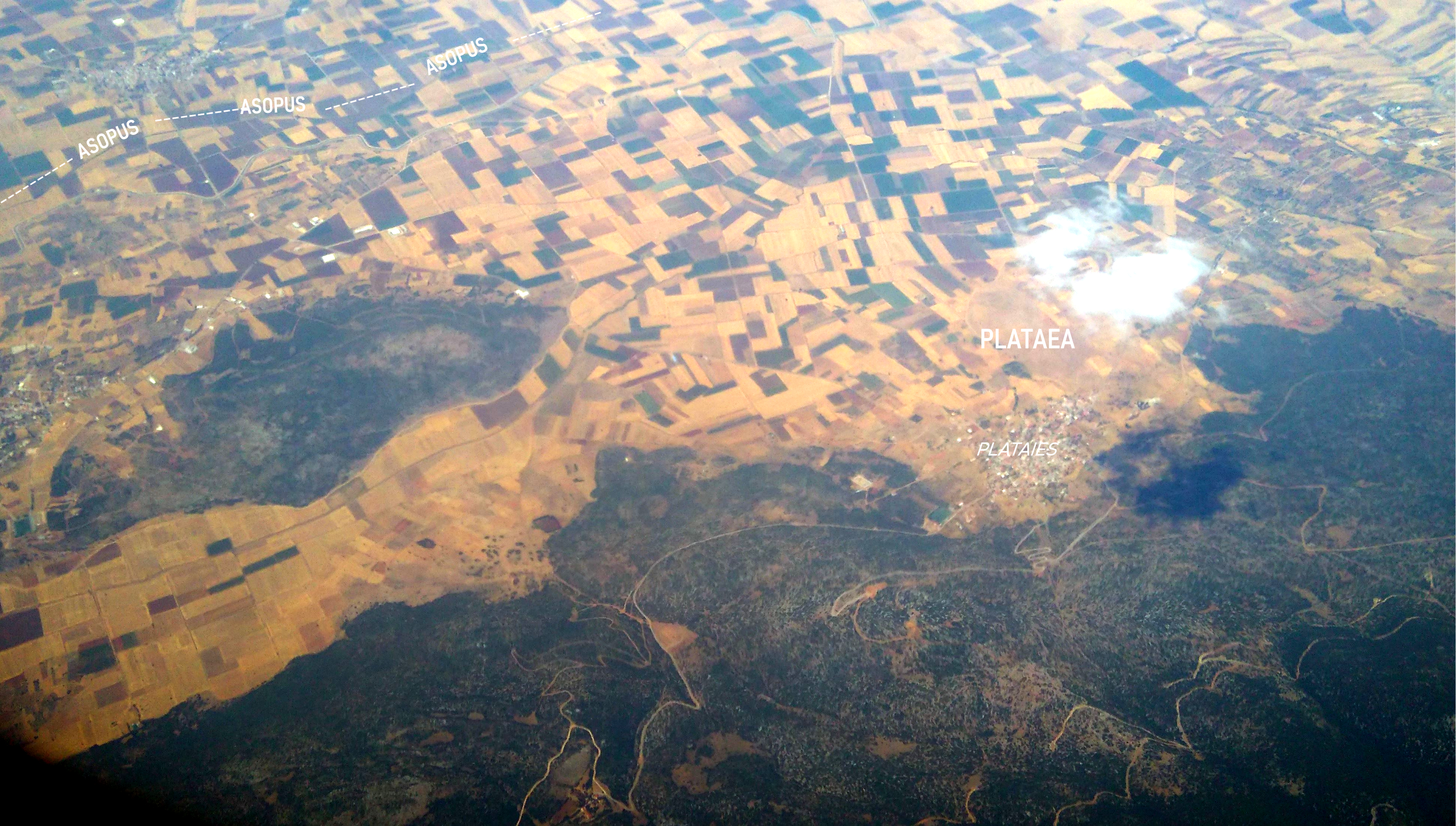|
Salamis (mythology)
Salamis ( ; grc, Σαλαμίς) was a nymph in Greek mythology, the daughter of the river-god Asopus and Metope, daughter of Ladon, another river god. She was sister to Corcyra, Sinope, Aegina, Peirene, Cleone, Thebe, Tanagra, Thespia, Asopis, Ornea, Chalcis (Euboea), Harpina, Antiope, Nemea, Plataea ( Oeroe), Pelagon (Pelasgus) and Ismenus. Mythology Along with her sisters Corcyra and Euboea, Salamis also shared their fate after they were all carried away by Poseidon from their father. The god took her to the island which was named after her by Cychreus, their son who became the first king of the island. In some accounts, she became the mother of Saracon by Zeus.Pseudo-Clement, ''Recognitions'' 10.21-23 Notes References * Apollodorus, ''The Library'' with an English Translation by Sir James George Frazer, F.B.A., F.R.S. in 2 Volumes, Cambridge, MA, Harvard University Press; London, William Heinemann Ltd. 1921. ISBN 0-674-99135-4Online version at the Perseus Dig ... [...More Info...] [...Related Items...] OR: [Wikipedia] [Google] [Baidu] |
Nymph
A nymph ( grc, νύμφη, nýmphē, el, script=Latn, nímfi, label=Modern Greek; , ) in ancient Greek folklore is a minor female nature deity. Different from Greek goddesses, nymphs are generally regarded as personifications of nature, are typically tied to a specific place or landform, and are usually depicted as maidens. They were not necessarily immortal, but lived much longer than human beings. They are often divided into various broad subgroups, such as the Meliae (ash tree nymphs), the Dryads (oak tree nymphs), the Naiads (freshwater nymphs), the Nereids (sea nymphs), and the Oreads (mountain nymphs). Nymphs are often featured in classic works of art, literature, mythology, and fiction. Since the Middle Ages, nymphs have been sometimes popularly associated or even confused with fairies. Etymology The Greek word has the primary meaning of "young woman; bride, young wife" but is not usually associated with deities in particular. Yet the etymology of the noun remains ... [...More Info...] [...Related Items...] OR: [Wikipedia] [Google] [Baidu] |
Ornea
In Greek mythology, Ornea or Ornia (Ancient Greek: Ὀρνία) was the possible eponymous nymph of Orneae, a town in Argolis. Otherwise, it is attributed to Orneus, the Athenian son of King Erechtheus.Pausanias, 2.25.6 & 10.35.8; Plutarch, ''Theseus'' 32.1; Stephanus of Byzantium, Orneiai'' Eusebius, ''Chronographia'66/ref> Family Ornia was one of the naiad daughters of the river-god Asopus and Metope, the river-nymph daughter of the river Ladon. She was the sister of Pelasgus, Ismenus, Corcyra, Salamis, Aegina, Pirene, Cleone, Thebe, Tanagra, Thespeia, Asopis, Sinope, ChalcisDiodorus Siculus, 4.72.1 and Harpina.Diodorus Siculus, 4.73.1 Notes References * Diodorus Siculus, '' The Library of History'' translated by Charles Henry Oldfather. Twelve volumes. Loeb Classical Library. Cambridge, Massachusetts: Harvard University Press; London: William Heinemann, Ltd. 1989. Vol. 3. Books 4.59–8Online version at Bill Thayer's Web Site* Diodorus Siculus, ''Bibliotheca H ... [...More Info...] [...Related Items...] OR: [Wikipedia] [Google] [Baidu] |
Salamis Island
Salamis ( ; el, Σαλαμίνα, Salamína; grc, label=Ancient and Katharevousa, Σαλαμίς, Salamís) is the largest Greek island in the Saronic Gulf, about off-coast from Piraeus and about west of central Athens. The chief city, Salamina, lies in the west-facing core of the crescent on Salamis Bay, which opens into the Saronic Gulf. On the eastern side of the island is its main port, Paloukia, in size second in Greece only to the port of Piraeus. Name The traditional etymology of Salamis derives it from the eponymous nymph Salamis, the mother of Cychreus, the legendary first king of the island. A more modern theory considers "Salamis" to come from the root ''sal'' 'salt' and ''-amis'' 'middle'; thus ''Salamis'' would be the place amid salt water. Other fringe theories have attempted to connect the name to the Semitic root Š-L-M 'health, safety, peace', because of the well-sheltered harbor, but have been for the most part rejected by the academic community. From ... [...More Info...] [...Related Items...] OR: [Wikipedia] [Google] [Baidu] |
Poseidon
Poseidon (; grc-gre, Ποσειδῶν) was one of the Twelve Olympians in ancient Greek religion and myth, god of the sea, storms, earthquakes and horses.Burkert 1985pp. 136–139 In pre-Olympian Bronze Age Greece, he was venerated as a chief deity at Pylos and Thebes. He also had the cult title "earth shaker". In the myths of isolated Arcadia he is related with Demeter and Persephone and he was venerated as a horse, however, it seems that he was originally a god of the waters.Seneca quaest. Nat. VI 6 :Nilsson Vol I p.450 He is often regarded as the tamer or father of horses, and with a strike of his trident, he created springs which are related to the word horse.Nilsson Vol I p.450 His Roman equivalent is Neptune. Poseidon was the protector of seafarers, and of many Hellenic cities and colonies. Homer and Hesiod suggest that Poseidon became lord of the sea when, following the overthrow of his father Cronus, the world was divided by lot among Cronus' three sons; Zeus w ... [...More Info...] [...Related Items...] OR: [Wikipedia] [Google] [Baidu] |
Corinna
Corinna or Korinna ( grc, Κόριννα, Korinna) was an ancient Greek lyric poet from Tanagra in Boeotia. Although ancient sources portray her as a contemporary of Pindar (born ), not all modern scholars accept the accuracy of this tradition. When she lived has been the subject of much debate since the early twentieth century, proposed dates ranging from the beginning of the fifth century to the late third century BC. Corinna's works survive only in fragments: three substantial sections of poems are preserved on second-century AD papyri from Egypt; several shorter pieces survive in quotations by ancient grammarians. They focus on local Boeotian legends, and are distinctive for their mythological innovations. Corinna's poetry often reworks well-known myths to include details not known from any other sources. Though respected in her hometown, Tanagra, and popular in ancient Rome, modern critics have often regarded her as parochial and dull; her poetry is nonetheless of interes ... [...More Info...] [...Related Items...] OR: [Wikipedia] [Google] [Baidu] |
Ismenus
In Greek mythology, the name Ismenus (Ancient Greek: Ἰσμηνός) or Ismenius may refer to: *Ismenus or Ismenius, son of Oceanus and Tethys, god of the river of the same name. He was mentioned as the father of several spring nymphs, including Dirce and Strophia, also Crocale and the musician Linus. In Statius' ''Thebaid'', the river god Ismenus gets involved in the war of the Seven against Thebes: he attempts to raise his waters against Hippomedon in revenge for the death of Crenaeus, son of his daughter Ismenis by Pan, but has to withdraw his attack at the request of Zeus. *Ismenus, son of Asopus and Metope, eponym of River Ismenus in Boeotia, on the banks of which he settled. *Ismenus, one of the Niobids. *Ismenus, also spelled Ismenius, son of Apollo and the Oceanid Melia, brother of the seer Tenerus, and an alternate eponym of River Ismenus, which is said to have previously been known as Ladon.Pausanias, 9.10.6 Notes References * Apollodorus, ''The Library'' wi ... [...More Info...] [...Related Items...] OR: [Wikipedia] [Google] [Baidu] |
Pelasgus
In Greek mythology, Pelasgus ( grc, Πελασγός, ''Pelasgós'' means "ancient") was the eponymous ancestor of the Pelasgians, the mythical inhabitants of Greece who established the worship of the Dodonaean Zeus, Hephaestus, the Cabeiri, and other divinities. In the different parts of the country once occupied by Pelasgians, there existed different traditions as to the origin and connection of Pelasgus. The Ancient Greece, ancient Greeks even used to believe that he was the first man. Inachid Pelasgoí of Argos : In Argos, Peloponnese, Argos, several King of Argos, Inachid kings were called Pelasgus: * Pelasgus, brother to Apis (Greek mythology), Apis both sons of Phoroneus, is said to have founded the city of Argos in Peloponnesus, to have taught the people agriculture, and to have received Demeter, on her wanderings, at Argos, where his tomb was shown in later times. * Pelasgus, son of Triopas of Argos, Triopas and Sois (mythology), Sois, and a brother of Iasus, Agenor, son ... [...More Info...] [...Related Items...] OR: [Wikipedia] [Google] [Baidu] |
Pelagon
There are several figures named Pelagon (Ancient Greek: Πελάγων, -ονος) in Greek mythology. * Pelagon, king of Phocis and son of Amphidamas. He gave Cadmus the cow that was to guide him to Boeotia. * Pelagon, also called Pelasgus,Diodorus Siculus, 4.72.1 son of the river-god Asopus by the naiad Metope, daughter of the river Ladon. He was brother to Ismenus, Corcyra, Salamis, Aegina, Peirene, Cleone, Thebe, Tanagra, Thespia, Asopis, Sinope, Ornea, Chalcis, Harpina and I smene. His sisters were abducted by various gods as punishment for their father's deed. * Pelagon, one of the suitors of Hippodamia before Pelops. * Pelagon, one of the Calydonian hunters. * Pelagon or Pelegon, who is given in the ''Iliad'' as the father of the Paeonian warrior Asteropaeus, son of the river-god Axius and Periboea, the daughter of Acessamenus. Presumably this Pelagon was the eponymous founder of Pelagonia. * Pelagon, a native of Pylos who fought under Nestor in the Trojan War. * ... [...More Info...] [...Related Items...] OR: [Wikipedia] [Google] [Baidu] |
Plataea (mythology)
Plataea or Plataia (; grc, Πλάταια), also Plataeae or Plataiai (; grc, Πλαταιαί), was an ancient city, located in Greece in southeastern Boeotia, south of Thebes.Mish, Frederick C., Editor in Chief. “Plataea.” '' Webster’s Ninth New Collegiate Dictionary''. 9th ed. Springfield, MA: Merriam-Webster Inc., 1985. , (indexed), and (deluxe). It was the location of the Battle of Plataea in 479 BC, in which an alliance of Greek city-states defeated the Persians. Plataea was destroyed in the Peloponnesian War by Thebes and Sparta in 427 BC, and rebuilt in 386. The modern Greek town of Plataies is built near its ruins. Alliance with Athens and presence at Marathon Herodotus wrote that, in order to avoid coming under Theban hegemony, Plataea offered to "put themselves into Spartan hands". However, the Spartans refused this offer and, wishing to cause mischief between the Boeotians and Athens, recommended that the Plataeans ally themselves with Athens instea ... [...More Info...] [...Related Items...] OR: [Wikipedia] [Google] [Baidu] |
Nemea (mythology)
In Greek mythology, Nemea (; Ancient Greek: Νεμέα or Νεμέαν means 'wooded district') was the eponymous nymph of Nemea, a district between Cleonae and Phlius in Argolis. Family Nemea was one of the naiad daughters of the river-god Asopus and possibly Metope, the river-nymph daughter of the river Ladon.Diodorus Siculus, 4.72.1 She was the sister of Salamis, Aegina, Corcyra, Thebe, Antiope, Cleone, Harpina, Plataea ( Oeroe), and Tanagra. In some account, Nemea's parentage is attributed to Zeus and Selene. Notes References * Diodorus Siculus, '' The Library of History'' translated by Charles Henry Oldfather. Twelve volumes. Loeb Classical Library. Cambridge, Massachusetts: Harvard University Press; London: William Heinemann, Ltd. 1989. Vol. 3. Books 4.59–8Online version at Bill Thayer's Web Site* Diodorus Siculus, ''Bibliotheca Historica. Vol 1-2''. Immanel Bekker. Ludwig Dindorf. Friedrich Vogel. in aedibus B. G. Teubneri. Leipzig. 1888-1890Greek text ava ... [...More Info...] [...Related Items...] OR: [Wikipedia] [Google] [Baidu] |
Antiope Of Thebes
In Greek mythology, Antiope (; Ancient Greek: Ἀντιόπη derived from ''αντι ''anti "against, compared to, like" and ''οψ ''ops "voice" or means "confronting") was the daughter of the Boeotian river god Asopus, according to Homer; in later sources she is called the daughter of the "nocturnal" king Nycteus of Thebes or, in the ''Cypria'', of Lycurgus, but for Homer her site is purely Boeotian. She was the mother of Amphion and Zethus. Myth Her beauty attracted Zeus, who, assuming the form of a satyr, rapes her. A.B. Cook noted that her myth "took on a Dionysiac colouring, Antiope being represented as a Maenad and Zeus as a Satyr". This is the sole mythic episode in which Zeus transforms into a satyr. Being pregnant with Zeus's child, Antiope feared the wrath of her father, Nycteus, and fled to Sicyon, where she married Epopeus.Roman, L., & Roman, M. (2010). After this she was carried off by Epopeus, who was venerated as a hero in Sicyon; he would not give her up t ... [...More Info...] [...Related Items...] OR: [Wikipedia] [Google] [Baidu] |




